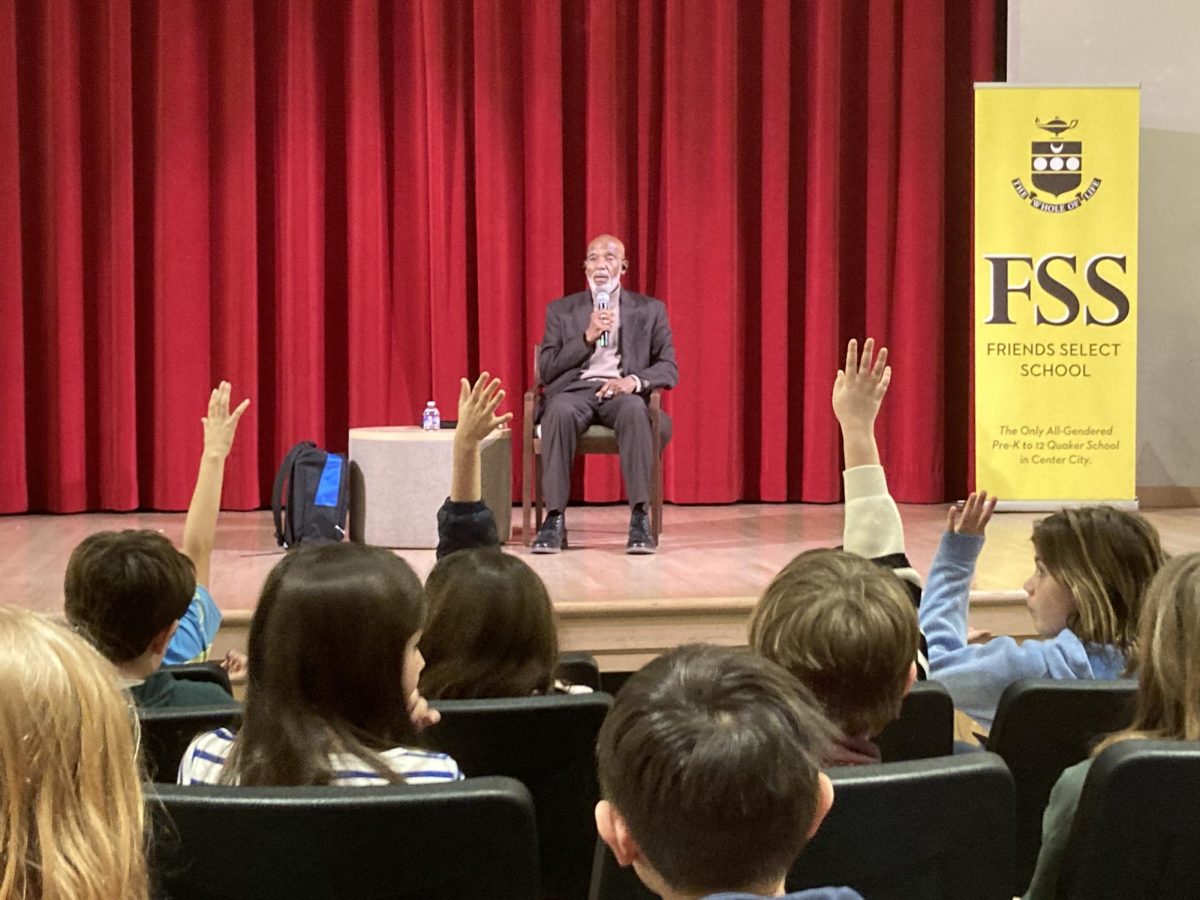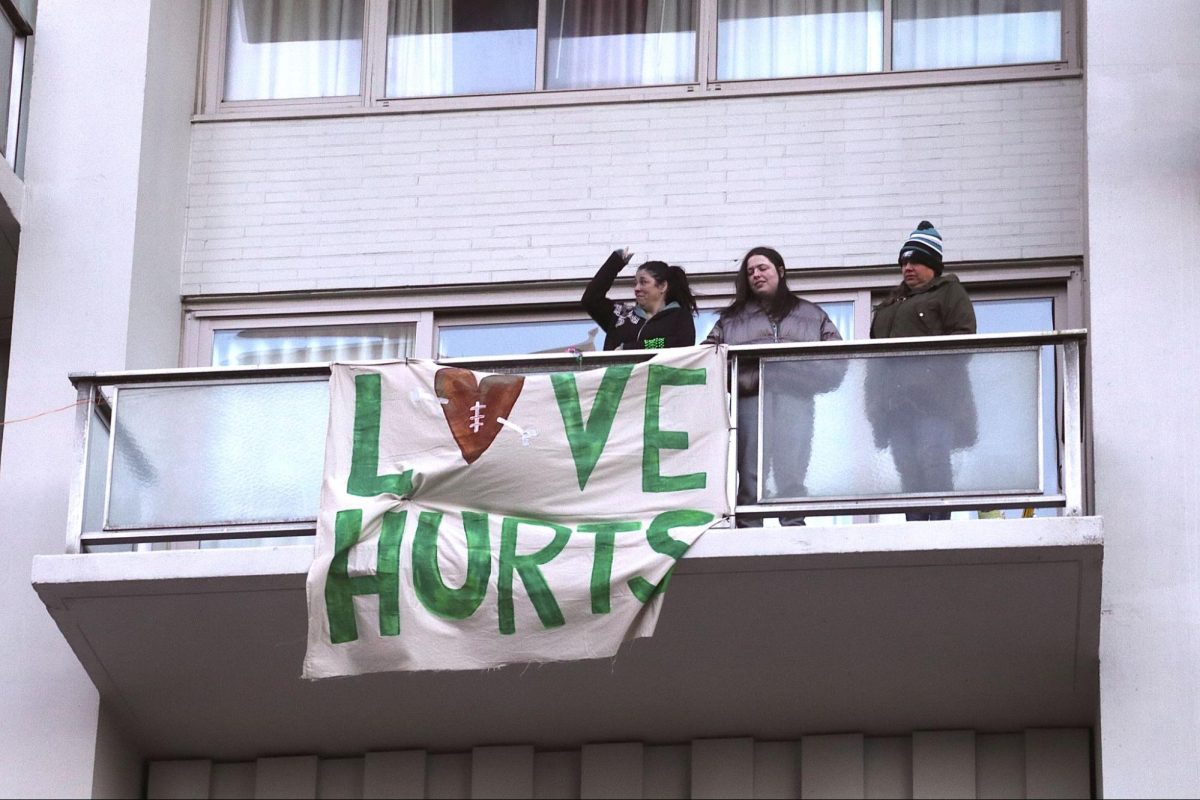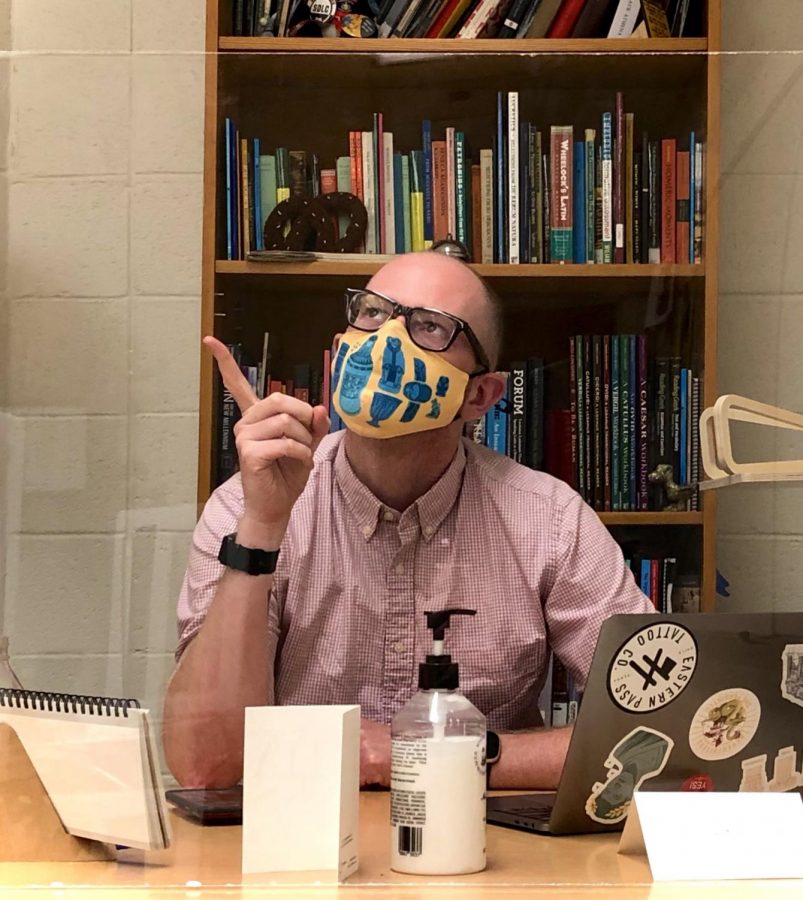Ian Lockey Expands and Reshapes Latin Curriculum
When Ian Lockey started teaching Latin at FSS nearly nine years ago, he taught classics the way he was taught — promoting the texts and culture from ancient Greece and Rome. While the art, literature, architecture, and philosophies of these civilizations have long been taught in the West as the ideal and pinnacle of human thought, Ian became troubled by the overt exclusion of other civilizations and idolization of the Ancient Mediterranean, and he was not the only one raising red flags around the teachings of ‘classics.’ Ian, appalled at the damage of these teachings, brought a more balanced and inclusive approach to his lessons, placing the study of Greek and Roman culture in the broader context of ancient world civilizations and modern social justice activism. He became “committed to rethinking what learning about the ancient world can be like.”
The way Classics is traditionally taught almost exclusively focuses on the achievements of the ancient Mediterranean world and upholds the notion that everyone should aspire to its ideals. This approach, however, excludes every other ancient culture around the world. One troubling result is that modern hate groups have twisted the Classics, using the accomplishments of people who lived in the Mediterranean thousands of years ago to justify white supremacy today. From this, Ian saw that racism, sexism, and hetero-normativity were deeply rooted in how he and many in his field were taught under the traditional classics education.
In 2015, Ian, who earned his Ph.D. in Classics and Classical Archaeology, took part in a workshop on diversifying the classics. There, he connected with activists and classics professors also addressing these issues, including Dani Bostick, with whom he has worked extensively in recent years.
Ian had already been thinking about the problems in classics. “Hate groups used things from the ancient world to support their values. As I realized how damaging certain parts of Classics were I started thinking about how I taught within the classroom, making sure everyone felt seen and heard.” He says that was the beginning of trying to develop his anti-racist curriculum, a project that will require constant work and redefining as building an anti-racist curriculum is a lifelong task. Ian thought about the true benefits of the teachings in his classroom, like reading poetry and learning grammar, and how that would actually benefit the students’ lives. He started to rethink what an appropriately challenging, educational, personal, and thought-provoking curriculum would look like.
Ian wanted his teachings to individually impact students’ daily lives and how they interacted with the world around them. So he uses his expertise in archaeology to teach lessons incorporating the location of FSS, Philadelphia. For example, the parkway is virtually a corridor of neo-classically structured buildings — essentially, as Ian describes it, “architecture that emulates Greek temple structures which tells the average passerby that these are white spaces.” Ian brings these conversations to his classroom to deepen the connection students can make between the ancient world and today. “The juxtaposition of Classics with reality helps to reinforce white supremacy. Part of my job as an educator of the ancient world should be to rethink how we look at the ancient world and how to undermine those structures.”
Ian broke down the upper-level Latin courses into what he calls “topic courses.” In Latin III he teaches about Roman women and issues of sexism, patriarchy, sexual violence, etc. In Latin IV they think about power and imperialism. And in Latin V they think about race and ethnicity. All of the courses however are intended to be completely intersectional. When thinking about women, they also consider gender constructs and different types of ways gender was and is presented. When thinking about power, they also delve into conversations around the perspective of the oppressed from more of a first-person lens. In the topics of race and ethnicity, they think a lot about the ways that the ancient world is used to enforce racism now even though there wasn’t even the concept of race at the time.
By having these in-depth discussions Ian hopes to speak to the individual student’s experiences. Students confront issues of sexism, gender identity, power dynamics, racism, and more daily. Ian only hopes to provide another lens and a deeper understanding. Ian gives readings and articles for his students to dissect but now, from a wider variety with thought-provoking writing prompts.
In the future, Ian hopes to do many things like to bring some of the topics he discusses in higher-level Latin to the lower levels. Another thing he hopes to do that has been slightly postponed due to COVID is to incorporate a service component into the Latin curriculum for students to explore what they can do as Philadelphians. He hopes to teach about all of the ways Classics have been weaponized in the modern world and then have his classes do service and whatever they can do together to help in dismantling those structures.
Ian is also committed to helping other educators develop curricula and understand the faults in the teachings of Classics. Outside of school, he has predominantly presented at conferences with the goal of helping other educators see what a socially conscious curriculum can look like. Over the past two years, Ian has presented at numerous conferences, speaking about what he has done within FSS and helping others think about moving towards an anti-racist education.
Germantown Friends Schools is planning on revamping their Latin III course, as it will now be connected to their African American history course. Seeking guidance, the Classics department reached out to Ian in January 2021 to join a meeting about helping them think about their approach to a more progressive curriculum. Beyond the high school level, Ian has also engaged in university-level discussions on how to incorporate new structures around Classics education, such as setting new policies around the types of papers allowed at conferences, the language used, and outreach.
Ian has leadership roles in a few groups: he is one of the moderators of a Facebook group called “Social Justice in the Secondary Classroom” and participates in the Classical Association of the Atlantic States Anti-racist Committee. Additionally, he is a Trustee of the Vergilian Society. In this role, Ian was set to do programming, however, it was postponed due to COVID-19. Ian will lead a workshop, now planned for 2022, for K-12 teachers about teaching the true ancient world and anti-racist teachings in the classroom. Ian has also written many articles varying in topics. Some of his favorites are:
“The Way We Teach Latin Has Consequences”
“Can We Work Together? Reframing Inclusivity in Classics”
“Not a ‘charming little tale’: Teaching the Pygmalion Myth Ethically”
“Misguided Models: Revisiting Costume Choices by the NJCL”
In his conference presentations, Ian frequently remarks on how grateful he is to work at Friends Select School. Every time Ian has had a new idea for his classes, Chris and the administration have allowed him to do so with enthusiasm. He also appreciates that the student body as a whole is engaged in his class discussions and genuinely cares about these deeper topics in Latin. This allows Ian to create a new generation of Latin learners who can look at the ancient world with a socially conscious lens and are equipped with the tools necessary to recognize and challenge inequitable structures.
























Olivia Shuman • May 7, 2021 at 12:50 PM
Hooray for challenging the field of classics!